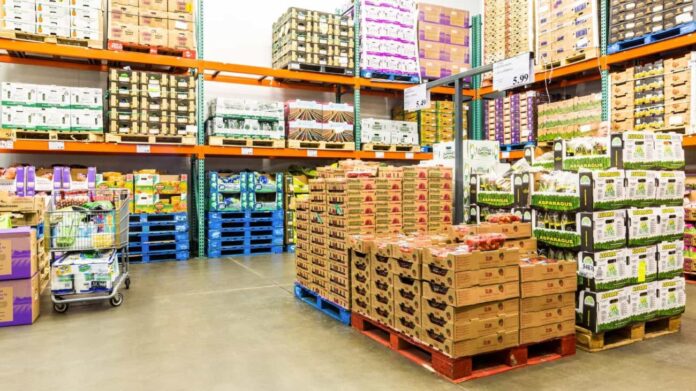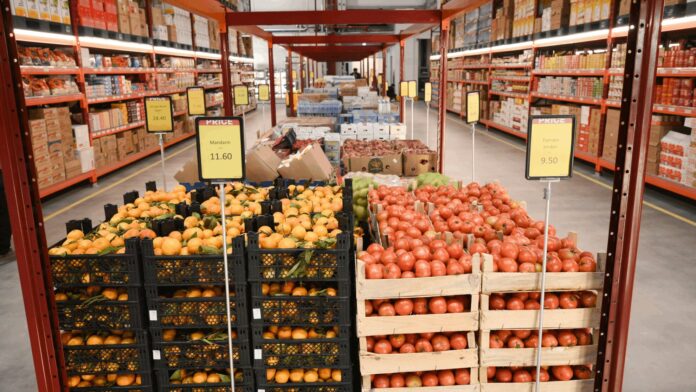In the dynamic world of food business operations, the partnership between businesses and food wholesalers stands as a pivotal element, significantly influencing the overall success and sustainability of business ventures. This comprehensive exploration delves into the multifaceted benefits that food wholesalers offer to businesses, providing invaluable insights and economy tips to navigate the complexities of the food industry.
The Essence of Food Wholesalers
Food wholesalers serve as the crucial link between producers and various food businesses, including restaurants, cafes, grocery stores, and institutional food service providers. By purchasing large quantities of food products directly from manufacturers or farmers, wholesalers can offer a diverse array of goods at reduced prices, including items like wholesale chicken wings. This foundational role not only streamlines the supply chain but also introduces a level of efficiency and reliability that businesses can leverage to their advantage.
Cost-Effectiveness and Bulk Purchasing

One of the most significant advantages of partnering with food wholesalers is the potential for cost savings. By buying in bulk, businesses can secure lower prices per unit, which translates into substantial cost reductions in the long run.
This economy of scale allows businesses to maintain competitive pricing for their end customers while preserving or even improving profit margins. The ability to buy large quantities at discounted rates provides a financial cushion that can be particularly beneficial during times of market volatility or unexpected demand fluctuations.
Diverse Product Selection
Food wholesalers typically offer a wide variety of products, from staple ingredients to specialty items, under one roof. This diversity enables businesses to source most, if not all, of their required inventory from a single supplier, simplifying procurement processes and reducing the time and effort spent on sourcing products from multiple vendors.
The expansive product range also encourages culinary innovation, allowing businesses to experiment with new recipes and menu items without the need for extensive search and procurement efforts.
Streamlined Logistics and Supply Chain Efficiency

Working with food wholesalers can significantly enhance supply chain efficiency. Wholesalers often have sophisticated logistics and distribution networks that ensure timely and reliable delivery of products.
This logistical support is crucial for businesses that require consistent supply levels to meet customer demand without overstocking, which can lead to waste and increased costs. Moreover, the ability to rely on a wholesaler’s distribution capabilities can free up resources that can be better utilized in other areas of the business, such as marketing, customer service, or product development.
Access to High-Quality Products
Food wholesalers are committed to maintaining high standards of quality to remain competitive and meet the demands of their clients. This dedication to quality assurance means that businesses can expect to receive products that meet their specifications and standards. Additionally, wholesalers often have direct relationships with producers, which can provide businesses with access to fresher, higher-quality products than might be available through traditional retail channels.
Market Trends and Consumer Insights

Beyond the tangible products they supply, food wholesalers can be valuable sources of market intelligence. Through their extensive networks and interactions with various stakeholders in the food industry, wholesalers gain insights into emerging market trends, consumer preferences, and industry innovations. Businesses can leverage this information to make informed decisions about menu design, product offerings, and marketing strategies, ensuring they remain aligned with consumer expectations and industry standards.
Flexible Payment Terms
To foster long-term relationships with their clients, food wholesalers often offer flexible payment terms. This flexibility can be particularly beneficial for new or growing businesses that may have tighter cash flow constraints. By negotiating favorable payment schedules, businesses can better manage their finances, ensuring that they have the liquidity needed to cover operational costs and invest in growth opportunities.
Customization and Value-Added Services
Many food wholesalers go beyond mere product distribution, offering a range of value-added services such as product customization, private labeling, and co-packing. These services enable businesses to differentiate their offerings and cater to specific customer needs without the need for significant investment in production facilities or equipment. Whether it’s custom packaging, unique product formulations, or branding services, these additional offerings can help businesses enhance their market presence and brand identity.
Enhanced Risk Management

The collaboration with food wholesalers offers businesses a unique advantage in managing operational risks, particularly those related to supply chain disruptions. Wholesalers, with their extensive networks and inventory management capabilities, can provide a buffer against shortages, ensuring that businesses have a continuous supply of necessary products.
This reliability becomes crucial in situations where external factors, such as weather events, political instability, or global pandemics, might impact the availability of certain goods. By mitigating these risks, businesses can maintain consistent operations and protect their bottom line.
Strengthened Business Relationships
Engaging with food wholesalers can lead to the development of strong, long-term business relationships that extend beyond mere transactional interactions. These relationships can be a source of strategic advantage, offering businesses priority access to new products, exclusive deals, and collaborative opportunities.
Wholesalers, valuing the business and loyalty of their clients, are often willing to go the extra mile to support their business partners, be it through customized service offerings, joint marketing efforts, or flexible support during challenging times. These strengthened relationships foster a sense of partnership and mutual growth, contributing to the long-term success of both parties.
Sustainability and Ethical Sourcing

In today’s environmentally conscious market, sustainability and ethical sourcing have become increasingly important to consumers. Food wholesalers are responding to this trend by adopting sustainable practices and ensuring that their products are sourced ethically.
Partnering with wholesalers who prioritize these values can help businesses align with consumer expectations, improve their brand image, and contribute to environmental and social sustainability.
End Note
The relationship between businesses and food wholesalers is characterized by a symbiotic dynamic that offers numerous benefits. From cost savings and supply chain efficiencies to access to high-quality products and market insights, the advantages are manifold.
By carefully selecting wholesaler partners that align with their operational needs and values, businesses can leverage these benefits to achieve competitive advantages, foster innovation, and drive sustainable growth. In the ever-evolving landscape of the food industry, the strategic utilization of food wholesalers remains a cornerstone for success.

